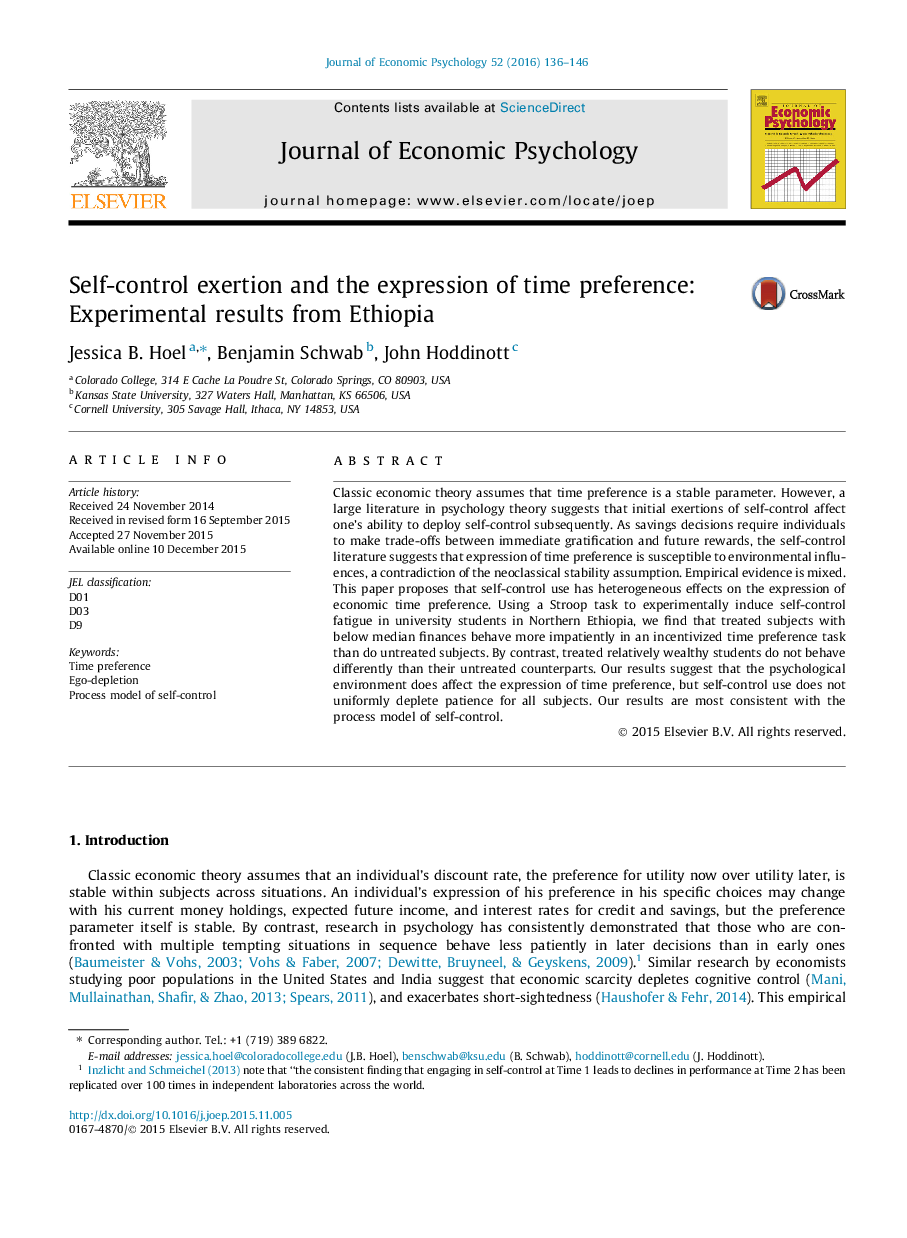| Article ID | Journal | Published Year | Pages | File Type |
|---|---|---|---|---|
| 884890 | Journal of Economic Psychology | 2016 | 11 Pages |
•A color discordant Stroop task has heterogeneous effects on time preference.•Self-control exertion lowers patience for poor students.•For wealthy students, self-control expenditure has no effect on patience.
Classic economic theory assumes that time preference is a stable parameter. However, a large literature in psychology theory suggests that initial exertions of self-control affect one’s ability to deploy self-control subsequently. As savings decisions require individuals to make trade-offs between immediate gratification and future rewards, the self-control literature suggests that expression of time preference is susceptible to environmental influences, a contradiction of the neoclassical stability assumption. Empirical evidence is mixed. This paper proposes that self-control use has heterogeneous effects on the expression of economic time preference. Using a Stroop task to experimentally induce self-control fatigue in university students in Northern Ethiopia, we find that treated subjects with below median finances behave more impatiently in an incentivized time preference task than do untreated subjects. By contrast, treated relatively wealthy students do not behave differently than their untreated counterparts. Our results suggest that the psychological environment does affect the expression of time preference, but self-control use does not uniformly deplete patience for all subjects. Our results are most consistent with the process model of self-control.
